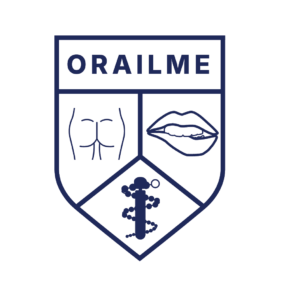BY Anna Dumont
This past Monday, Nov. 9, marks the 20th year since East Berliners and West Berliners came together to tear down the Berlin Wall. The anniversary was difficult to miss an opportunity to reflect on the optimism of newly freed people and the hope of a world in which the dark cloud of nuclear annihilation retreated, if not entirely.
At Berlin’s celebration, Mikhail Gorbachev and Angela Merkel retraced the path of the East Germans who surged across a bridge to the West. Lech Walesa toppled the first in a series of 1,000 brightly painted dominoes that traced the former path of the wall, a symbol of the swift sequence of events that felled oppressive regimes across Europe. The shape of these ‘velvet revolutions” owes a great deal to the Solidarity Movement that Walesa led out of the Gdansk Shipyard and onto the Polish streets. But there is another group of men and women who were overlooked on Monday those who led the Monday Demonstrations out of the St. Nicholas Church in Leipzig, Germany.
For a decade, the St. Nicholas Church provided a forum for dissidents to come together and call for reform, free travel and finally for the end of the regime. The Monday meetings began to grow from twelve people to hundreds, and then thousands. The pastors of the Church, Christoph Wonneberger and Christian Fuehrer, were arrested at the end of September 1989 and warned not to continue. Despite the specter of a violent crackdown, they pressed on, preaching nonviolence and solidarity to the gathering crowds. Finally, on Oct. 9, over 70,000 people from across the country gathered at the Nicolaikirche, the largest demonstration the GDR had ever seen. With chants of ‘No Violence” and ‘We Are the People,” they faced down the weakened government of Erich Honecker. The Monday demonstrations continued, spread to Berlin and, within a month, the Berlin Wall had fallen.
I find myself moved to write about Leipzig’s radical church for two reasons. The first is that any group of people so willing to risk everything their safety, their freedom, their future to stand against oppression and authoritarianism deserves to be remembered and honored. Just as the writings of Gandhi moved King and Mandela, the struggles of the past continue to inspire those fighting in the present.
The second reason is the role of religion in this particular struggle, a fact that has been consistently overlooked in this week’s remembrances. In a recent interview with Deutsche-Welle, Pastor Fuehrer remembered, ‘The Bible had taught us the power of peaceful protest and this was the only weapon we had… this is what I told the young people at the peace prayers and, incredibly, it was a message they understood, and they rejected violence.” Men and women of faith recognized their special responsibility to act against oppression and violence, and the deep respect for the church as an institution that rallied the people and perhaps held the government’s guns at bay. As has been true for every major social movement from abolition to the Burmese resistance to Iran’s Green Movement, religion demonstrated a unique and transformative power to bring people together in the interest of social justice and peace.
In the present public discourse on religion, this reminder is deeply necessary. There is a real debate going on as to whether religion is important at all public figures such as Christopher Hitchens and Bill Maher, who was recently here for Meliora Weekend, condemn religion as solely a source of violence and hatred, a residual coping phenomenon from less enlightened times that we would be better off purging from our civilization.
As the Nicolaikirche in Lepizig and a multitude of other examples show, this could not be further from the truth. There is no doubt that evil has been perpetrated in the name of God. But religion, at its best, offers the most effective support known to us for people yearning to be free. As liberation theology expresses, any conception of the divine in mankind brings with it the responsibility to end suffering and injustice in the global community. The results of this belief have been earthshaking.
A final note on this subject as we look back on these events of 1989, it is evident that the stakes of understanding religion from an academic perspective are exceptionally high. Perhaps more than any other pursuit, religious studies strive to understand what moves people at their core what allows them to face down tanks with their bodies or walk through tear gas. As Professor Brooks often says with the greatest respect for the English department, nobody jumps out of foxholes for Chaucer. In light of this, the state of the UR religion department is particularly tragic.
Despite the passion of both its students and professors, the department is, as Jerome Nathaniel phrased it in this section several weeks ago, ‘half-naked.” Whether the result of administrative neglect or simply as a consequence of the financial difficulties we now face, the fact remains that the department as it stands today is ill-equipped to meet the needs of students striving to explore religion. If the University wants to produce the scholars and activists who will be of consequence in the world-shaping events of the future, the religion department cannot remain at the bottom of the College’s list of priorities.
Dumont is a member of
the class of 2011.

